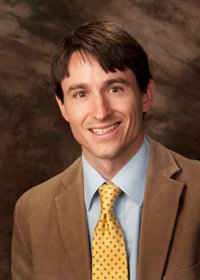- Home
-
About
 Fidelity & Excellence
Fidelity & ExcellenceThomas Aquinas College is unique among American colleges and universities, offering a faithfully Catholic education comprised entirely of the Great Books and classroom discussions.
-
A Liberating Education
 Truth Matters
Truth MattersTruth, and nothing less, sets men free; and because truth is both natural and supernatural, the College’s curriculum aims at both natural and divine wisdom.
-
A Catholic Life
 Under the Light of Faith
Under the Light of FaithThe intellectual tradition and moral teachings of the Catholic Church infuse the whole life of Thomas Aquinas College, illuminating the curriculum and the community alike.
-
Admission & Aid
 Is TAC Right for You?
Is TAC Right for You?Do you enjoy grappling with complex questions? Are you willing to engage in discussions about difficult concepts, with the truth as your ultimate goal?
-
Students & Parents
 Mind, Body & Spirit
Mind, Body & SpiritThere is always something to do at TAC — something worthwhile, something fulfilling, and something geared toward ever-greater spiritual and intellectual growth.
-
Alumni & Careers
 What Can You Do with a Liberal Education?
What Can You Do with a Liberal Education?Nothing speaks more to the versatility of the College’s academic program than the good that our alumni are doing throughout the Church and the world.
- Search
- Giving
Two Class of 2005 Authors in “The Public Discourse”
“Darwin is clearly aware — and bothered by the fact — that his theory of evolution through natural selection is not only unsupported by, but actually contradicts, the reports given to us through our senses, as well as the ‘common sense’ we gain from these reports over time. So he argues, in response, that this common sense is founded on mere ‘imagination’ rather than ‘reason,’ and with a Kantian determination he asks that we repress our ‘empirical’ impressions in favor of our abstract theoretical convictions.
“Yet why, we can ask, should we trust Darwin’s theory more than our own eyes? As persuasively as this theory explains many phenomena of nature and archeological discoveries, is its acceptance worth having to admit that the world is actually nothing like our experience of it? If a theory that the earth rests on the shell of a giant sea turtle explained enough phenomena, would it similarly command our assent?”
That article, perhaps not surprisingly, generated some controversy, leading Dr. Seagrave to issue a follow-up:
“The sort of ‘eye test’ I have in mind, and which I believe poses an underappreciated challenge to Darwinian evolutionary theory, involves much more than simply ‘looking’ or physically seeing; it is, rather, precisely what Aristotle describes as ‘the originative source of scientific knowledge’ in his Posterior Analytics. According to Aristotle, all scientific knowledge must build upon previous knowledge, leading to the problem of knowledge’s ultimate origin. This origin lies, according to Aristotle, in a process of induction or intuition whereby sense impressions become memories, and memories become ‘experience.’
“This experience is defined by abstraction — we human beings experience the world in terms of stable and defined universal concepts, and these concepts in turn form the building blocks of all subsequent knowledge. Our experience in this special Aristotelian sense, for example, tells us that elephants are different in kind from human beings, and not in degree, however large this degree may be. Our experience, on its own and apart from whatever scientific education we may possess, tells us that human beings are separated from elephants by rationality — not by millions of years of differential development.”
Not so fast, says Mr. Pfundstein. A board member of the National Abstinence Education Association (as well as the president of the Chiaroscuro Foundation), Mr. Pfundstein has co-authored an article for The Public Discourse, in which he argues that the sort of messages that Miss Smart received are not representative of most Sexual Risk Avoidance (SRA) programs:
“While no one can vouch for every abstinence program that has been used by well-intentioned presenters over the last two decades, we can confidently say that the sort of demeaning messages received by Smart and others are outside the mainstream of state-of-the-art abstinence-education programs.
“Perhaps most relevant to the current controversy is the fact that the SRA approach is the only one that believes in ‘another chance’ for any individual who has made unhealthy decisions in the past. Far from being ‘used up,’ teens are given renewed hope for starting over. ‘Renewed abstinence’ is an articulated goal of SRA programs, and there is some evidence that it is easier to get young people to choose renewed abstinence than to get them to use condoms.”
Archives of past work by Mr. Pfundstein and Dr. Seagrave are available at the website of The Public Discourse, which is published by the Witherspoon Institute.



